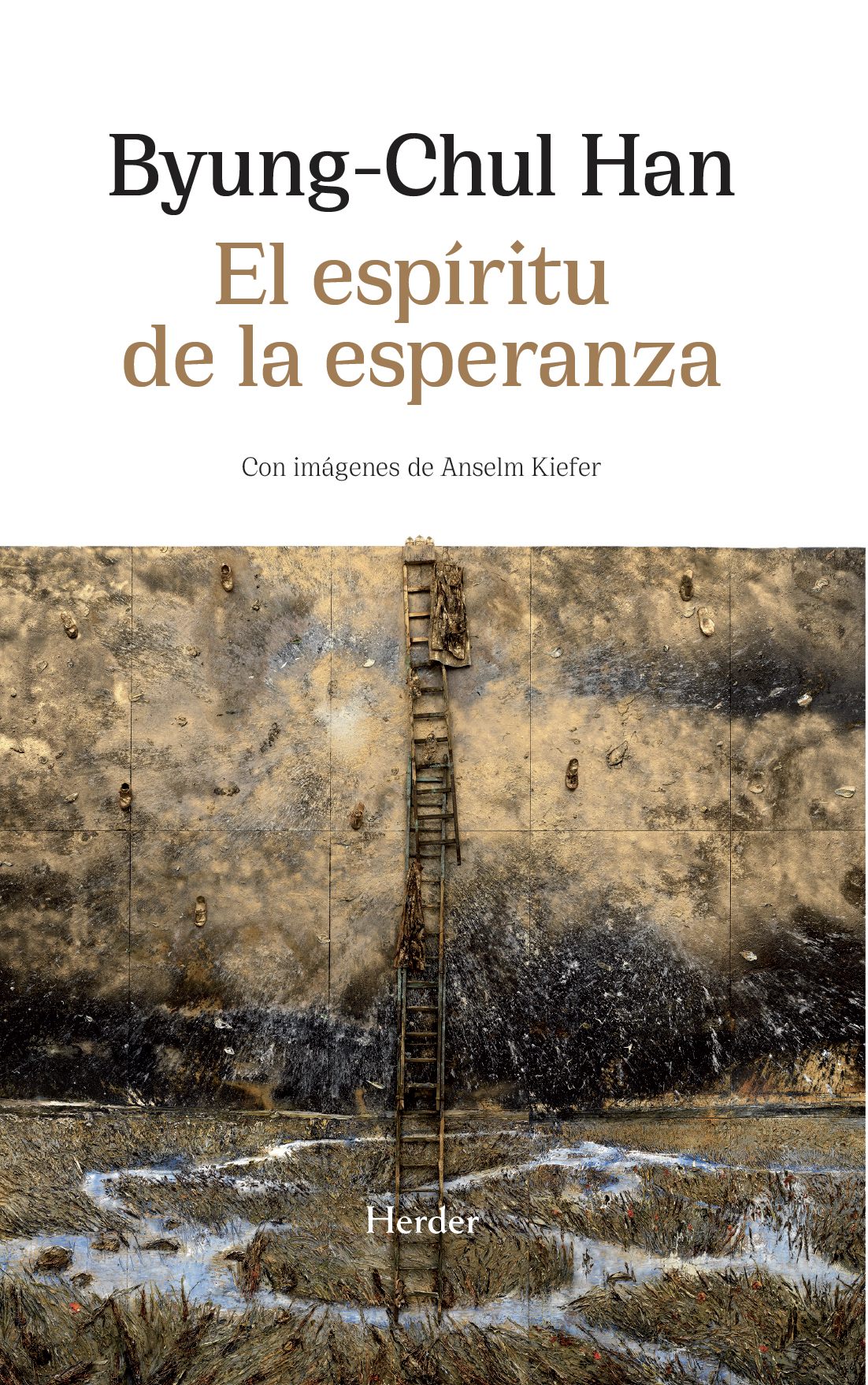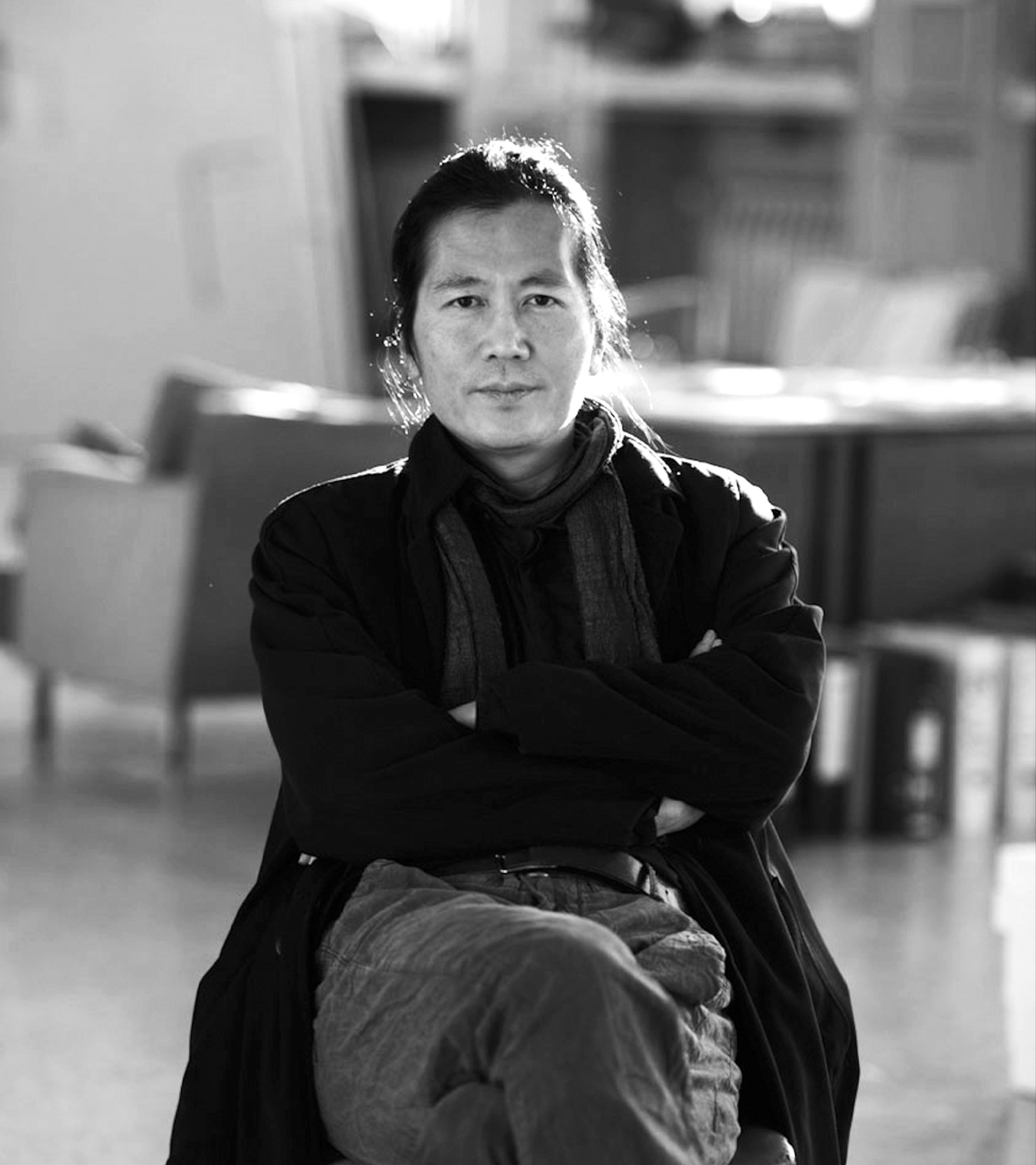'Hope opens our eyes to what is to come': Byung-Chul Han

EL TIEMPO publishes a portion of the prelude to the latest book by German-born South Korean philosopher Byung-Chul Han, 'The Spirit of Hope' (Herder, 2024), who was recently recognized with the Princess of Asturias Award for Communication and Humanities.
The specter of fear looms. We are constantly facing apocalyptic scenarios such as pandemics, world wars, or climate catastrophes: disasters that continually make us think about the end of the world or the end of human civilization. In 2023, the Doomsday Clock indicated ninety seconds to midnight. It is said that its minute hand has never been so close to twelve.
It seems that apocalypses are all the rage. They're already being sold like merchandise: Apocalypses sell . And not only in real life, but also in literature and film, there's an atmosphere of the end of the world. For example, in his short story *The Silence *, Don DeLillo tells the story of a total blackout. Numerous literary works also tell of rising temperatures and rising sea levels. Climate fiction has already established itself as a new literary genre. Another example: TC Boyle's novel *A Friend of the Earth* tells of a climate change of apocalyptic proportions.
We are suffering a multiple crisis. We look anxiously toward a grim future. We have lost hope. We move from one crisis to the next, from one catastrophe to the next, from one problem to the next. With so many problems to solve and so many crises to manage, life has been reduced to a matter of survival. The panting survivalist society is like a sick person trying by all means to escape impending death. In such a situation, only hope would allow us to recover a life in which living is more than surviving. It unfolds a whole horizon of meaning, capable of reviving and encouraging life. It gives us the gift of the future.
A climate of fear has spread, killing every germ of hope. Fear creates a depressive atmosphere. Feelings of anguish and resentment push people to embrace right-wing populism. They fuel hatred. They lead to a loss of solidarity, cordiality, and empathy. The rise of fear and resentment leads to the brutalization of the entire society and, ultimately, ends up being a threat to democracy. Outgoing US President Barack Obama rightly said in his farewell speech: "Democracy can buckle when we give in to fear ." Democracy is incompatible with fear. It only thrives in an atmosphere of reconciliation and dialogue. Anyone who absolutizes their opinion and doesn't listen to others has ceased to be a citizen.
Democracy is incompatible with fear. It only thrives in an atmosphere of reconciliation and dialogue.
Fear has always been an excellent instrument of domination. It makes people docile and easy to extort. In a climate of anxiety, people dare not freely express their opinions, for fear of repression. Hate speech and digital lynchings, which clearly fuel hatred, prevent opinions from being freely expressed . Today, we are even afraid to think. It seems we have lost the courage to think. And yet, it is thought, when it becomes empathetic, that opens the doors to what is totally different. When fear reigns, differences dare not be revealed, so that only a pursuit of the same occurs. Conformity prevails. Fear closes the doors to what is different. What is different is inaccessible to the logic of efficiency and productivity, which is a logic of the same.
Where there is fear, freedom is impossible. Fear and freedom are incompatible. Fear can transform an entire society into a prison, it can quarantine it. Fear only sets up warning signs. Hope, on the other hand, leaves indicators and signposts. Hope is the only thing that makes us set out on a journey. It gives us meaning and direction, while fear makes it impossible to move forward.
Today we're not just afraid of viruses and wars; climate fear also worries people. Climate activists confess to being "afraid of the future." Fear robs them of their future. There's no doubt that there are reasons to be "afraid of the climate"; that's undeniable. But what's truly worrying is the spread of the climate of fear. The problem isn't the fear of the pandemic, but the pandemic of fear. Things done out of fear aren't actions open to the future. Actions need a horizon of meaning. They must be narratable. Hope is eloquent; it narrates. On the contrary, fear is denied to language; it is incapable of narrating.

Herder Editorial / First edition / 2024 / Distributed by Siglo Photo: Herder Editorial
Anxiety (Middle High German angest , Old High German angust ) originally means, as in Latin, 'narrowness'. By narrowing and blocking vision, anxiety stifles all breadth, all perspective. Those who are anxious feel cornered. Anxiety brings with it a feeling of being imprisoned and closed in. When we are anxious, the world seems like a prison. All doors that would lead us to the outdoors are closed. Anxiety impedes the future, closing off the doors to the possible, to the new.
Already by the etymology of the term, hope is the opposite of fear. Friedrich Kluge's etymological dictionary explains the word hoffen , "to wait," thus: "When one wants to see further or tries to see better, one stretches forward." Therefore, hope means "to look into the distance, to look into the future." Hope opens our eyes to what is to come. The verb verhoffen , "to take the wind," still has the original meaning of wait, hoffen . In hunting slang, it means "to investigate or track game with the wind," that is, to stop to listen, to stalk, to sniff. Hence, the saying "the dog takes the wind." Whoever waits "takes the wind," that is, to look where to stand and which direction to take.
The deepest hope is born from the deepest despair. The deeper the despair, the stronger the hope. It is no coincidence that, in Greek mythology, Elpis, the goddess of hope, is the daughter of Nyx, the goddess of night. Elpis's brothers are Tartarus and Erebus (the gods of darkness and shadows), and her sister is Eris. Elpis and Eris are related. Hope is a dialectical figure. The negativity of despair is constitutive of hope. Saint Paul, too, emphasizes that negativity is inherent in hope:
“We also rejoice in our sufferings, because we know that suffering gives us strength to endure, and this strength earns us God's approval. And God's approval gives us hope, a hope that never disappoints.”
Despair and hope are like valley and mountain. The negativity of despair is inherent in hope. This is how Nietzsche explains the dialectical relationship between hope and despair:
“Hope is a rainbow unfolding over the spring of life, which rushes down in a dizzying cascade; a rainbow swallowed a hundred times by the foaming waters and remade a hundred times anew, and which with tender and beautiful audacity rises above the torrent, where its roar is most wild and dangerous.”
There is no more accurate description of hope. It possesses a tender and beautiful audacity. Those who have hope act boldly and are unfazed by the rigors and harshness of life. At the same time, hope has something contemplative about it. It stretches forward and strains its ears. It has the tenderness of receptivity, which gives it beauty and charm.

Han studied German Literature and Theology at the University of Munich, and Philosophy at the University of Freiburg. Photo: Herder Editorial
For the Princess of Asturias Award jury, the German philosopher and essayist of South Korean origin, Byung-Chul Han, has brilliantly interpreted the challenges of technological society and, through his work, has revealed an extraordinary ability to communicate precisely and directly "new ideas that draw on philosophical traditions from both East and West."
The jury's report also highlights Han's analysis as "extremely fruitful and provides insights into issues such as dehumanization , digitalization, and the isolation of individuals."
He is the author of more than a dozen titles, including "The Society of Fatigue" (2010), "The Society of Transparency" (2012), "The Salvation of Beauty" (2015), and "The Disappearance of Rituals" (2020). In his most recent works , he has broadened his critical approach to contemporary society, incorporating reflections on hope and contemplation.
He has combined his career as an essayist with university teaching in Germany, where he studied German Literature and Theology at the University of Munich. He worked at the University of Basel (Switzerland, 2000-2012) and was a professor of Philosophy and Cultural Studies at the University of Fine Arts in Berlin , after having taught at the Karlsruhe School of Design.
The South Korean thinker, who maintains that our lives are permeated by hypertransparency, hyperconsumerism, an excess of information, and a positivity that inevitably leads to a society of fatigue, doesn't own a smartphone and doesn't go sightseeing . He listens to analog music and devotes part of his time to cultivating his garden, all in an attempt to rebel against capitalism, which he sharply criticizes in his work. In his view, society has abandoned reflection, retreat, and meditation, and therefore no longer values individuality.
eltiempo





